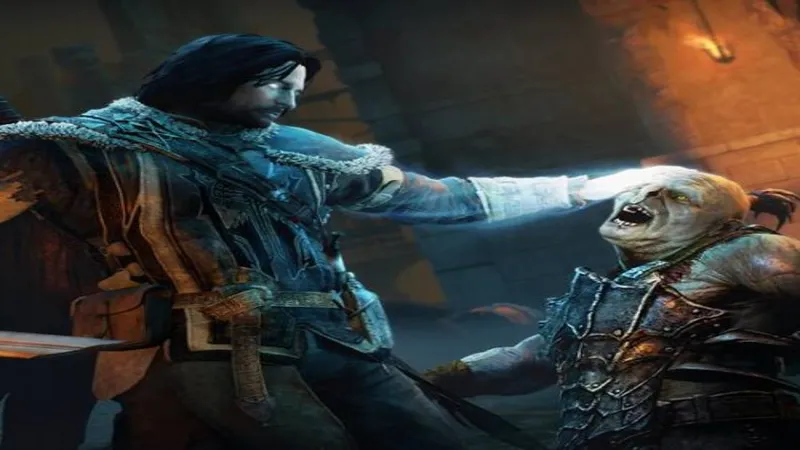
Nemesis System: WB’s Patent Stifles Game Innovations
In a significant turn of events, Warner Bros. Games has decided to suspend the innovative studio Monolith Productions, creators of the acclaimed Shadow of Mordor series, effectively putting a damper on their groundbreaking Nemesis System. This decision not only affects the future of Monolith’s projects, including the highly anticipated Wonder Woman game, but it also raises broader concerns about the implications of patenting game mechanics in the industry. As WB prioritizes corporate safety over creative exploration, the gaming landscape risks stagnation, complicating the efforts of developers eager to push boundaries and experiment with new ideas. This opinion piece delves into the ramifications of this decision and the challenges posed by an increasingly restrictive patent system.
| Aspect | Details |
|---|---|
| Publisher | Warner Bros. Games (WB Games) |
| Game Studio | Monolith Productions |
| Notable Titles | Blood, No One Lives Forever, Shogo: Mobile Armor Division, F.E.A.R., Shadow of Mordor, Shadow of War |
| Patent | US2016279522A1 – Covers ‘Nemesis characters, nemesis forts, social vendettas and followers in computer games’ |
| Expiration Date | August 2036 |
| Impact of Patent | Other games cannot use the Nemesis System without licensing or modifying their mechanics |
| Recent Changes | Monolith’s closure and the cancellation of the Wonder Woman game |
| Market Trends | Only 6% of video game patents are granted, with many being defensive strategies |
| Other Companies | Nintendo, Konami, Bandai Namco, Sony hold significant patents affecting the industry |
| Industry Concerns | Patents may stifle innovation and restrict developers from creating new games |
| Commentator’s View | Some believe broader game patents may not hold up in court, but few dare to challenge WB Games |
The Rise of the Nemesis System
The Nemesis System, created by Monolith Productions, became a groundbreaking feature in video games, introducing unique mechanics that allowed enemies to develop personalities and memories based on players’ actions. This innovative approach not only made gameplay more engaging but also created a dynamic storytelling experience. Players could encounter the same enemy multiple times, with each encounter evolving as the nemesis remembered their previous battles, adding depth and excitement to the gaming experience.
Since its debut in the Shadow of Mordor series, the Nemesis System has been praised for its creativity and depth. It transformed the way players interacted with NPCs (non-player characters), encouraging them to strategize and become emotionally invested in their battles. However, the recent patenting of this system by Warner Bros. has raised concerns about creativity and innovation in gaming, as developers now face restrictions in creating similar gameplay mechanics.
Frequently Asked Questions
What is the Nemesis System in video games?
The Nemesis System allows enemies to remember players, gaining unique strengths and weaknesses, creating dynamic storylines and rivalries that enhance gameplay.
Why was the upcoming Wonder Woman game canceled?
The Wonder Woman game was canceled due to the shutdown of Monolith, the studio behind it, and the loss of access to the innovative Nemesis System.
How long is the Nemesis System patent valid?
The Nemesis System patent will expire in August 2036, after which other games can use similar mechanics without legal issues.
What impact do game patents have on developers?
Game patents can restrict developers from using certain mechanics, making innovation difficult and often requiring them to license ideas to avoid litigation.
Why do companies file for game patents?
Companies file for game patents to protect their investments, prevent plagiarism, and maintain a competitive edge in the gaming industry.
Are game mechanics like the Nemesis System considered inventions?
There is debate over whether game mechanics can be patented, as they exist in software and may not produce tangible results.
What action can developers take if they want to use patented game mechanics?
Developers can either create distinct mechanics to avoid infringement, seek a license from the patent holder, or risk legal challenges.
Summary
Warner Bros. Games has shut down Monolith, the studio behind popular titles like Shadow of Mordor, which featured an innovative “Nemesis System” allowing enemies to evolve based on player interactions. This closure means that the upcoming Wonder Woman game, which was to use this system, is now canceled. The Nemesis System is patented until 2036, preventing other games from using similar mechanics without risking legal issues. This decision complicates creativity in game development and highlights concerns over how patents can stifle innovation in the gaming industry.